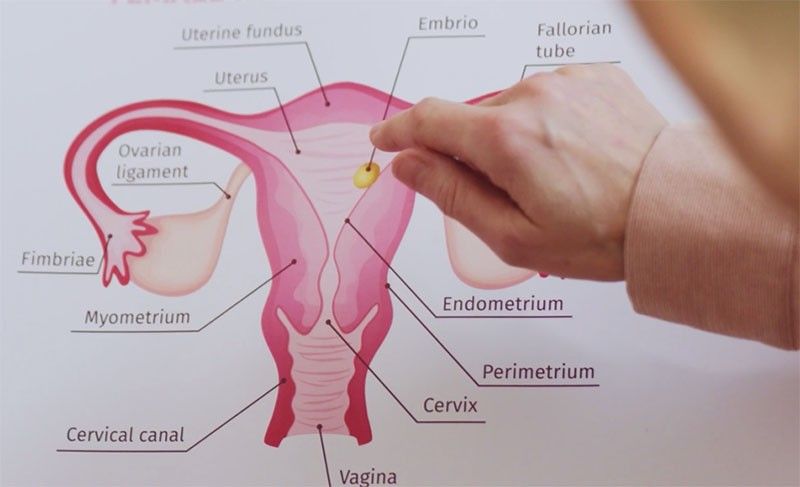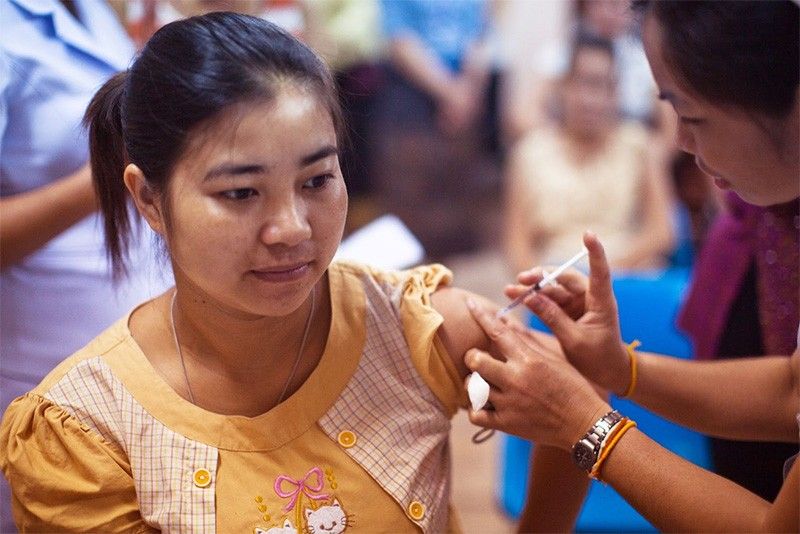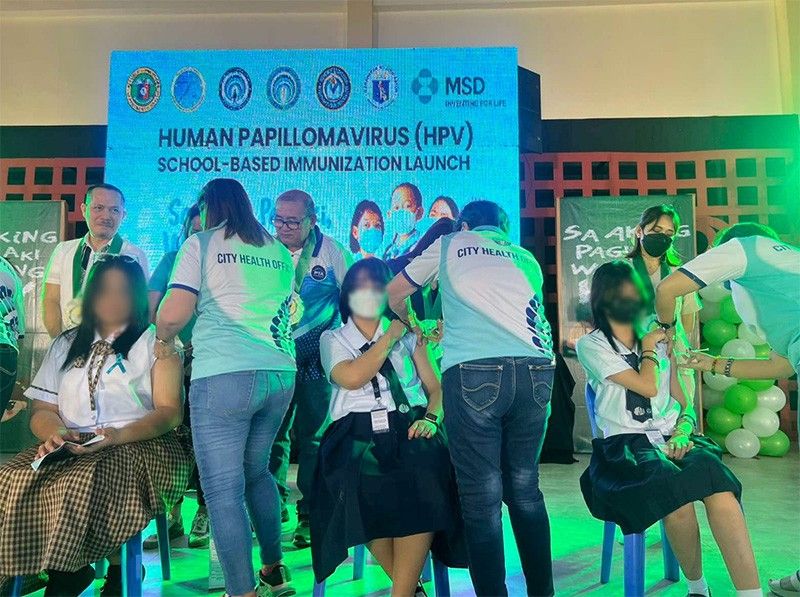A cervical-cancer-free future for every Filipina


Did you know that there are only two vaccines that can prevent cancer?
One of these is the Human papillomavirus (HPV) vaccine which protects our bodies against cervical cancer—a fairly recent medical development, and a much-needed breakthrough for women’s health.
Globally, cervical cancer is the fourth most common cancer for women. The World Health Organization said that in 2020, cervical cancer caused 342,000 deaths. Additionally, 90% of these occurred in low- and middle-income countries—which, sadly, is what our country is currently classified as.
In the Philippines, cervical cancer is the second most common cancer for Filipinas. Annually, almost 8,000 women are diagnosed with the disease. And every day, there are 11 of us mothers, sisters, daughters, and friends who are taken by cervical cancer. Clearly, there is a need to protect each other from this disease. How can we accomplish this?
In a recent episode of Okay, Doc, I took the opportunity to talk to doctors, pharmacists, and experts about the HPV vaccine. Our guests were unanimous about the facts: cervical cancer is highly preventable, and the HPV vaccine is safe.
With cancer being the third leading cause of death in our country, almost all of us, unfortunately, know someone who has been diagnosed or has passed away due to this disease. It could be a family member, a friend, or a coworker — the closer the patient is to our lives, the more we feel their pain. And within families, the pain comes with the additional burden of treatment, which can affect us emotionally, psychologically, and financially.

To save our loved ones from such trials in the future, our course of action should be to protect ourselves today. Dr. Stephanie Mesina-Veneracion, one of our guests, encouraged viewers about the efficacy of the vaccine, revealing that even those already diagnosed with cervical cancer can still take the vaccine to help with their treatment.
And compared to the cost of treatment that follows cervical cancer diagnosis, the HPV vaccine also protects us from taking a significant financial hit, Dr. Veneracion added.
Meanwhile, our next guest, Dr. Cybele Lara Abad, helped us clarify misconceptions about getting vaccinated. Can Filipinos trust the HPV vaccine? “The short answer is yes,” Dr. Abad affirmed, as it’s been tested and proven safe and effective. And according to her, vaccines are, in fact, one of the top ten breakthroughs in the 21st century!
Dr. Abad also assured us that despite the HPV vaccine being one of the more recent developments in immunization, that doesn’t take away anything from its safety. She was also quick to add that despite the vaccine’s main objective to prevent cervical cancer, it also significantly lowers the chances of cancer in men in the reproductive area, as well as in the head and neck area.
Other common adult vaccines also include those that prevent pneumonia, influenza, COVID-19, and Hepatitis A and B—the latter two are what can keep us safe from liver disease including cancer in this area.

Our guests agreed that if there was one silver lining about the recent pandemic, it was our renewed trust in immunization and vaccines, and it showed that if we truly worked together for the sake of public health, we could protect our community and prevent losing our friends and family to disease. It also paved the way for a new perspective on vaccination programs, showing us what the health sector truly needs in the fight against preventable diseases.
Philippine Pharmacists Association (PPhA) National Manager Bryan Posadas, also one of our guests, revealed that after finding “a gap in adult vaccination,” the Professional Regulation Commission has authorized the PPhA to add training in their program that can impart the needed skills in administering vaccines with safety and efficacy as top priority.
And now, we can start to find more ‘certified pharmacy vaccinators’ in pharmacies that can actually administer vaccines as we buy them!
“Like in other countries, we wanted to improve the access to make it easier for the public to get their vaccines,” Bryan added with a caveat: consult a doctor first.
I share in the hope of our guests that the HPV vaccine can soon be integrated with national immunization programs while joining others in advocating for HPV vaccination and correcting misconceptions.
Furthermore, for non-medical professional folks like us, there are more ways to empower our fellow women in their health and wellness: I asked the viewers of our recent Okay, Doc episode to sign our online petition for SolidariTeal, which calls on the attention of our policymakers, legislators, and leaders in the public and private sector to develop and implement programs for the screening, diagnosis, and vaccination against HPV.

As a fellow mother, sister, tita and friend, I consider no step too big or too small in our fight for a cervical cancer-free future.
----
Watch Pamilya Talk on Facebook, YouTube and Kumu (@JingCastaneda – 12:00 noon – 1:00 p.m. Monday & Wednesday). You can also follow my social media accounts: Instagram, Facebook, YouTube, Tiktok, Twitter and Kumu. Please share your stories or suggest topics at editorial@jingcastaneda.ph.



















